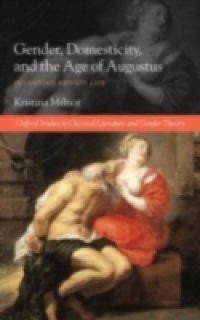The age of Augustus has long been recognized as a time when the Roman state put a new emphasis on `traditional' feminine domestic ideals, yet at the same time gave real public prominence to certain women in their roles as wives, mothers, sisters, and daughters. Kristina Milnor takes up a series of texts and their contexts in order to explore this paradox. Through an examination of authors such as Vitruvius, Livy, Valerius Maximus, Seneca the Elder, and Columella, sheargues that female domesticity was both a principle and a problem for early imperial writers, as they sought to construct a new definition of who and what constituted Roman public life.



 10 (1)
10 (1) 




















